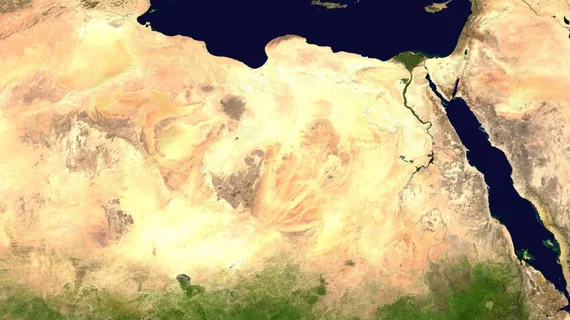AI finds unmapped regions in need of health services
Machine-learning analyses of satellite images can help identify communities needing healthcare services in some of the most remote parts of the planet, according to a study published Aug. 14 in the Journal of the American Medical Informatics Association.
The work was led by researchers at the Icahn School of Medicine’s Arnhold Institute for Global Health in New York City.
Senior study author Prabhjot Singh, MD, PhD, and colleagues homed in on clusters of buildings in southeastern Libya, which has vast swaths of largely inhospitable terrain, after the sites had been identified as probable sites of community-level activities by a deep-learning algorithm.
To test the algorithm, the team compared its results against information manually gathered on the same sites by census takers and community health workers.
They found their AI approach had a positive predictive value of more than 86%, along with close to 80% sensitivity at detecting individual buildings.
Further, the algorithm correctly detected 451 communities registered by the census takers—and found an additional 167 communities that weren’t even registered.
The team did note several instances of false positives and false negatives.
Machine-learning analysis of satellite images “is a promising solution for mapping remote communities rapidly, and with relatively low costs,” the authors concluded. “Results suggest that these methods have the potential to enhance community health worker scale-up efforts in underserved remote communities.”
In their discussion, Singh et al. note that the ability to link such mapping info with community health systems “can be a powerful tool for service delivery, health policy planning and advocacy, especially in low- and middle-income countries.”
“This capacity to monitor health and population indicators with increasing granularity is consistent with calls for a more precision-oriented approach to global health,” they add, “one that has the potential to facilitate greater targeting of health services to the places and people with the most pronounced need.”
The study is available in full for free.

